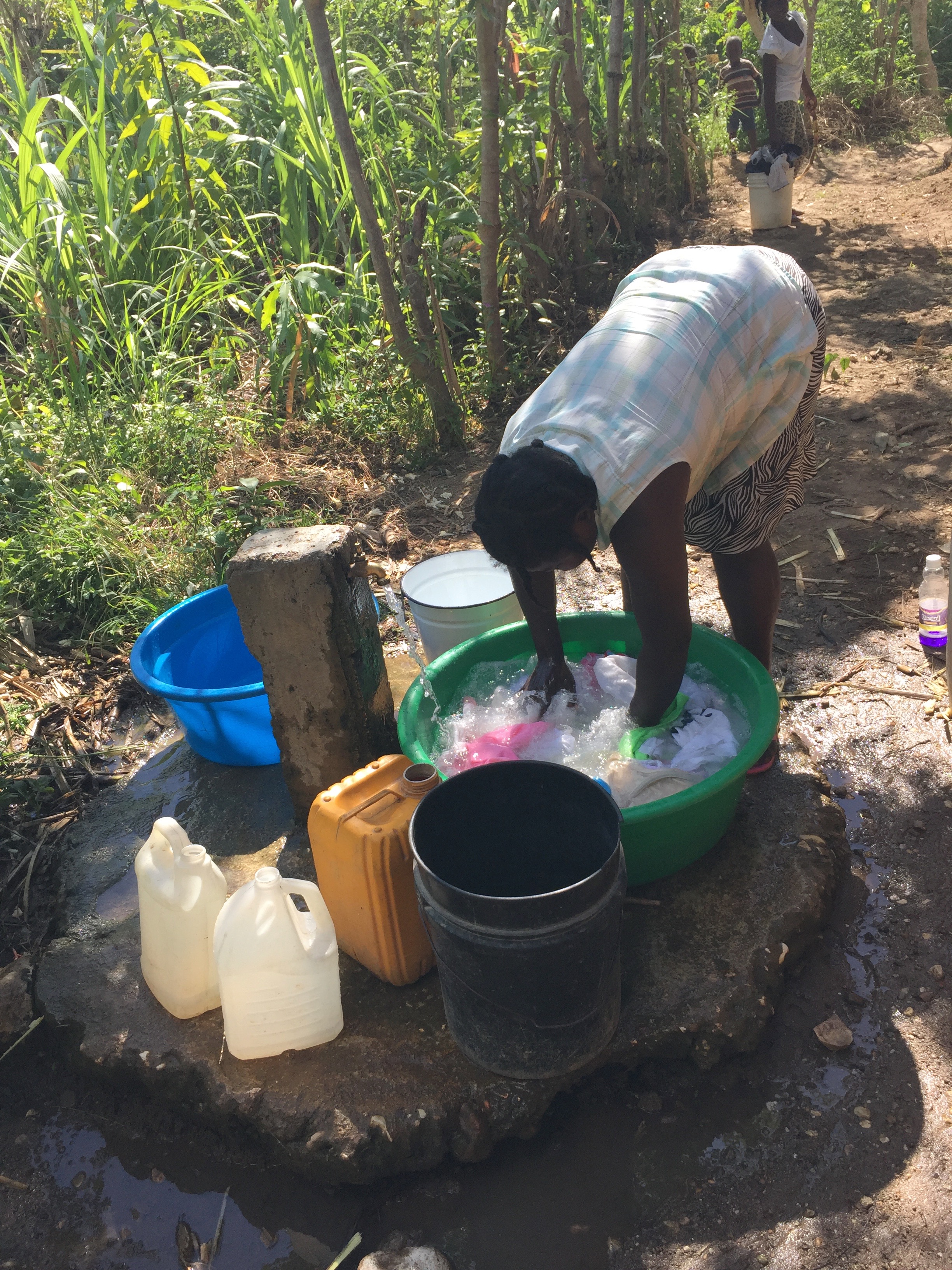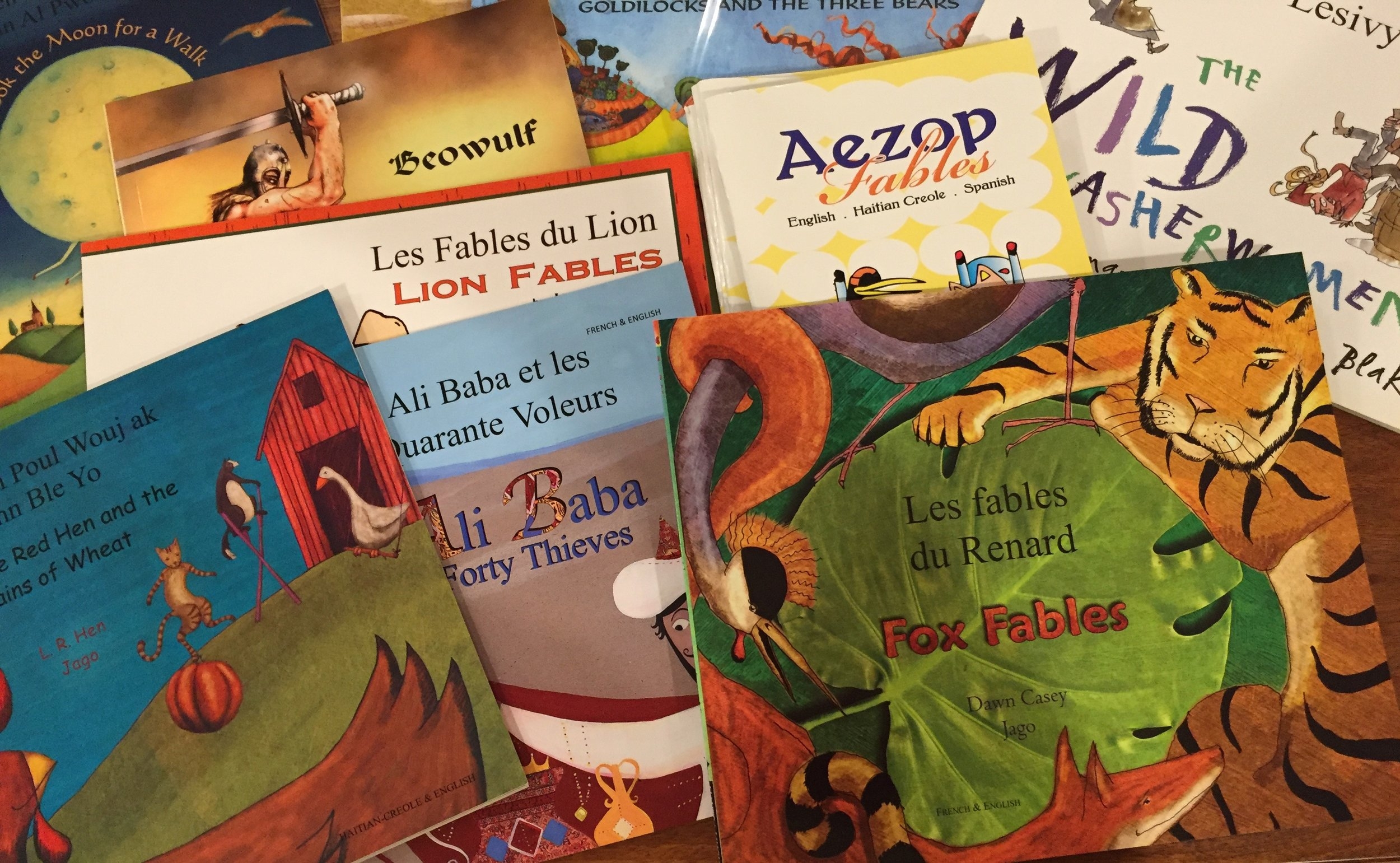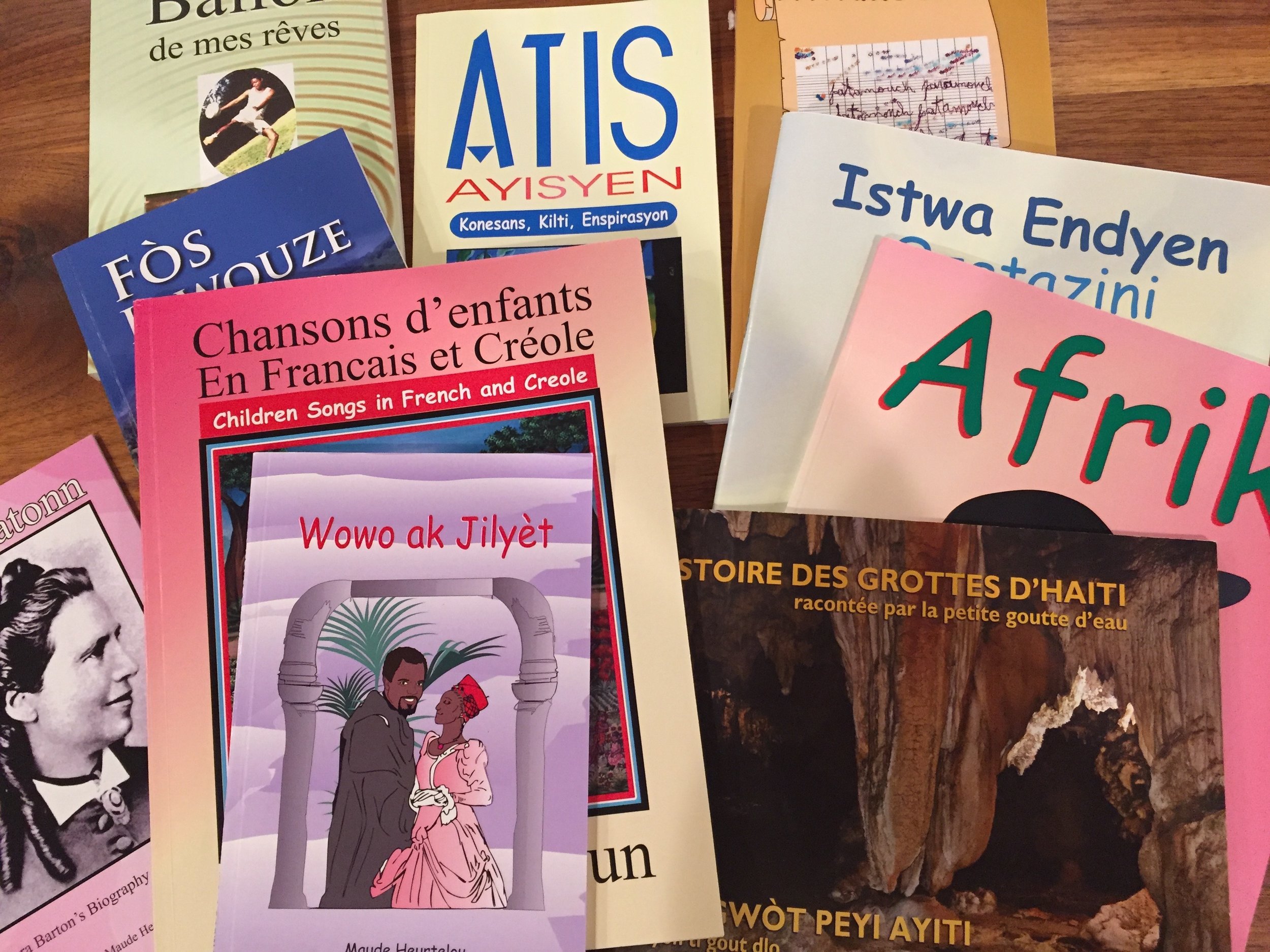The divides are many.
We are the richest nation per capita in the Western Hemisphere. Haiti is the poorest.
We speak English. They speak Kreyol and French.
Our lives are aided (dominated?) by complex, ubiquitous technology. The EcoVillages don’t even have electricity.
We drive and walk fast. They walk everywhere at a relaxed amble.
We live in splendid isolation behind the walls of our houses, where most of the faces we see each day are on our devices. They live interlocked lives with their neighbors, with whom they collect water, raise large families and even share outhouses.
We demand security from police, EMTs, retirement funds, Social Security, warranties, contracts, and armies. They have no security except for the good will of their neighbors.
We grouse about pot-holes near us. The nearest paved road to the EcoVillages is 5 miles away.
We shop at Kroger, Publix, Your Dekalb Farmer’s Market, Sprouts, Whole Foods, depending on what specifically we want. Plus, we eat out a lot. They eat what can grow in their yard gardens.
We watch AcuWeather forecasts and movement of temperatures during the day. They pray for a safe hurricane season that doesn’t level their crops.
We are God’s Frozen Chosen, adhering to the rules of the Book of Order, but keenly aware of an elusive God whom we cannot detect with our scientific instruments and whose presence in the world seems confusing. They are part Catholic, part charismatic, part voodoo, 100% believers that God controls their fate.
We frown a lot. They smile a lot.
I know. I am going on, but I could keep going. The differences are many and they are fundamental.
From the beginning of our project to build a school for children who would otherwise not learn to read, we articulated a commitment to bridge that gap, to build relationships. We intended to know these people, to understand their struggles and their joys. We decided to learn from their wisdom and to authentically present ourselves so that we could be known to them, too. For 5 years we have dispatched delegations to meet, learn and share. Ask anyone who has been and they will tell you about the life-enriching experience. And our Haitian partners know something more about us, as represented by the child who reaches out to touch our skin to learn if it is real like her own skin.
Last year we exchanged art between the children at the EcoVillage school and our own children. We said, “Draw a picture about your life.” The art about their lives has hung on our walls for our children to see. Our children’s life art hangs on their school walls now. Photos show curious children looking at the others’ images, wondering about their lives.
This year, to bridge the distance, we have invited the founder of the EcoVillages to come to us. He is a man worth knowing.
When you meet him you’ll be drawn to the smile, in part because you’ll see that his 70-year-old face has spent a lot of its time smiling. This from a man who has avoided assassination through exile and has spent all of his life living among some of the poorest people on earth. There is wisdom to be learned from someone so courageous.
You will see a man of the world who has traveled to Lima and Durbin to contribute to United Nations conferences on climate change, Paris and San Francisco to receive honors for his work. Yet he still lives in Papay among the people he spends his life helping. There are insights to be gleaned from someone so broad.
You will hear from a man who has wielded political power as adviser to Haiti’s president, but has never compromised the well-being of his people for personal gain. Can we ever get too much from people of integrity?
So come meet Chavannes. Broaden your experience and understanding.
At the same time, let him learn about us through your presence. You will be one of the people he talks about when he returns to talk to the families in the EcoVillages and the children at the school. Your presence will help build that bridge of understanding and respect that holds the promise of a better tomorrow for all of God’s people, Haitian and American, rich and poor, smilers and frowners.
Hear Chavannes at Emory University Candler School of Theology, Thursday, 4/12 5:30-7:30pm
























